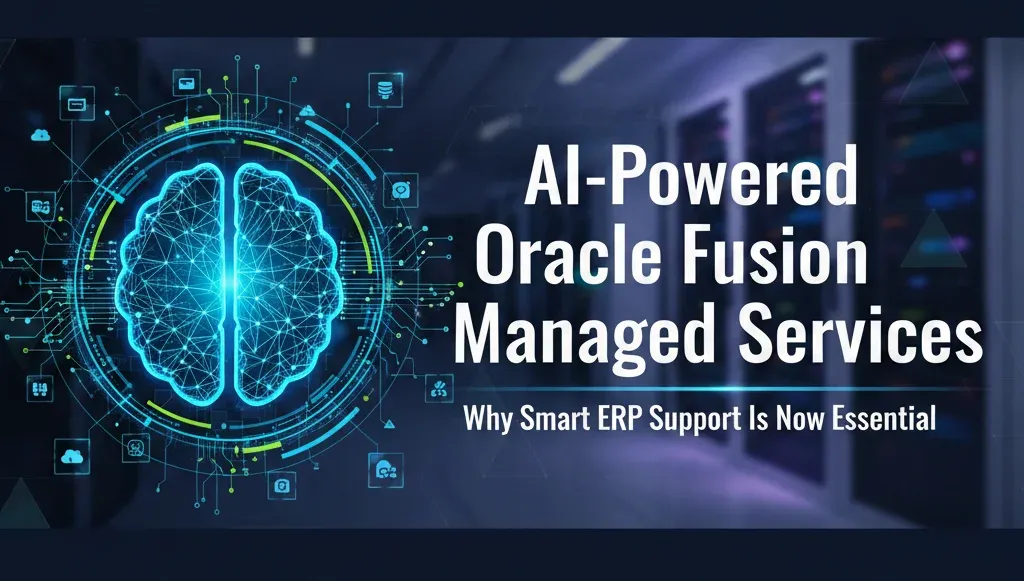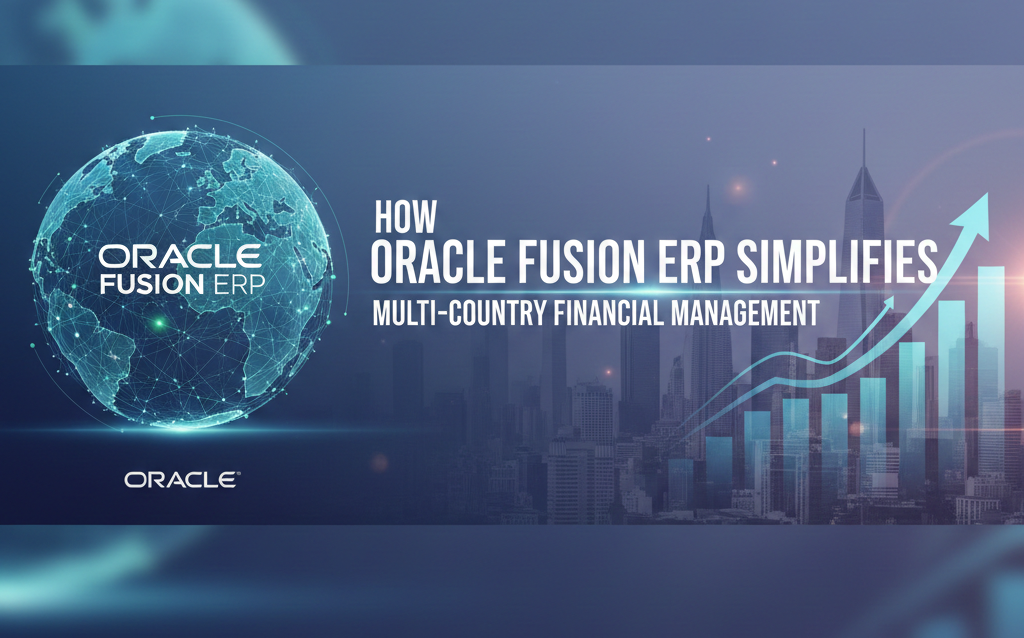Market disruptions aren’t occasional anymore. Whether it’s a sudden supply-chain breakdown, a change in regulation, inflation-driven cost pressures, or a new digital business model forcing a pivot, companies must be prepared. For leaders—CFOs, COOs, founders—the question isn’t if a disruption will hit, but how resilient the organization is when it does.
When you deploy cloud enterprise-resource-planning (ERP) with NetSuite, you’re acquiring a strong foundation. But what really makes the difference when things change fast is the partner you choose. This blog explains why the right NetSuite partner matters, how they support you when disruption strikes, and what decision-makers should evaluate today.
What We Mean by “Market Disruptions”
In today’s environment, disruptions take many forms: rapid shifts in demand, raw material or logistics breakdowns, regulatory or tax policy changes, workforce constraints, or emerging technology shifts that render existing operations obsolete. These forces challenge businesses that rely on legacy systems, manual workarounds, or siloed data. A company’s resilience increasingly depends on its systems, processes, and partner ecosystem working in tandem.
Why ERP Alone Is Not Enough
Deploying NetSuite provides a modern architecture—cloud-native, scalable, and accessible from anywhere. However, if implementation focuses solely on “going live” without aligning with business processes, change management, and future volatility, you can be left exposed. A partner bridges that gap: they align technology to your business context, enable integrations across functions (finance, supply chain, HR, CRM), and ensure you can adapt when disruption comes.
What NetSuite Partners Bring to the Table in Disruptive Times
Rapid deployment & flexibility: When the environment shifts, you need to act fast. High-quality partners provide modular implementation and iterative upgrades rather than large, rigid implementations.
Industry-specific insight: Whether you’re manufacturing, retailing, or servicing, your partner should bring industry experience so they understand the sources of disruption unique to you.
Integration capability: A disruption rarely affects only finance. It touches the supply chain, HR, and customer service. Partners that can integrate NetSuite with CRM, SCM, and HCM systems keep operations running smoothly.
Change-management and business process alignment: Technology alone won’t change behavior; the partner helps you restructure workflows and train teams, so your ERP becomes a resilient infrastructure.
Continuous support and future-proofing: Disruptions don’t wait until “post-go-live.” With NetSuite expanding its AI, global cloud footprint, and partner ecosystem (500+ partners globally), you need a partner who stays with you as the environment evolves.
Compliance and localization: For multinational or regionally-based businesses, partners help address regulatory shifts, local data residency, and tax changes.
How Partners Help Navigate Disruption Scenarios
1. Supply-Chain Disruption
Risk: raw material shortages, logistics delays, and canceled shipments.
Partner response: configure NetSuite for real-time inventory visibility, alternative supplier workflows, and dynamic purchase-order automations. You gain the agility to shift suppliers or channels without losing control.
2. Regulatory or Compliance Shock
Risk: new tax regimes, data-residency mandates, international regulations.
Partner response: ensure NetSuite is localized, integrate e-invoicing/ GST or other regional workflows, accelerate audit-readiness, and build in compliance.
3. Business Model Pivot / Rapid Growth / Tech Shift
Risk: demand jumps (or drops), digital transformation required, remote-work shift, analytics needed.
Partner response: re-architect your NetSuite setup for scale, integrate AI/analytics modules, and speed up adoption so your workforce can use the system effectively. NetSuite’s partner ecosystem is already pushing AI solutions.
What CFOs, COOs & CIOs Should Ask When Choosing a NetSuite Partner
- Do they have an industry-specific track record in your sector?
- Can they demonstrate business outcome delivery, not just technical go-live?
- What is their integration capability (finance + supply-chain + HR + CRM)?
- How do they manage change management, training, and process redesign?
- Is their pricing transparent, especially given budget pressures caused by disruptions?
- What post-go-live model do they follow? Will they continue to support you as your business evolves?
- How do they handle localization/compliance, especially if you operate globally or in regulated markets?
- Do they have a future-proof mindset: capable of leveraging new tech (AI, analytics, cloud-native updates) as the ERP evolves?
What Good Partnerships Look Like & What to Watch
Good signs: Partner asks your business-model questions, provides a roadmap for resilience, shows previous disruption-readiness wins, integrates across functions, and offers clear cost and timeline.
Red flags: Focus only on “software install”, little talk of process change, no scenario planning for disruption, unclear go-live versus value-realization, surprises in budget or scope.
Next Steps for Business Leaders
- Audit your current ERP/operational resilience: where would you be exposed in the next disruption? What processes are manual/fragmented?
- Define your resilience agenda: is your priority cost-control, scale, pivot-capability, compliance, or all of these?
- Short-list NetSuite partners: ask specifically how they’ve helped clients navigate disruptions. Request case examples or references.
- Align budget/timeline for real value: disruption-ready ERP is not just “go-live in six months”—it’s about readiness, agility, and continuous improvement.
- Build a continuous-improvement roadmap: after core ERP is live, plan integrations, analytics, and change management to ensure your business can adapt as the environment changes.
Conclusion
Disruptions are no longer rare. They’re the context in which business decisions are made, especially for companies scaling, globalizing, or operating in complex markets. Deploying NetSuite gives you a modern ERP backbone—but the partner you choose determines whether you navigate disruption or get disrupted. For CFOs, COOs, and founders, align your technology strategy with the right partner now, and you’ll turn disruptions into opportunities.
Frequently Asked Questions
What do “market disruptions” mean in a business context?
Market disruptions refer to sudden changes that impact business operations—like supply chain breakdowns, new regulations, inflation, or shifts in technology. These events test how adaptable and resilient a company is in uncertain conditions.
Why isn’t ERP alone enough to handle market disruptions?
An ERP like NetSuite gives you a strong technological foundation, but resilience requires more than software. Without a skilled partner to align ERP with your business processes, train teams, and manage change, your system may struggle when unexpected events occur.
How do NetSuite partners add value during disruption?
NetSuite partners help you respond quickly to changing conditions through flexible deployment, process alignment, industry-specific expertise, system integration, and ongoing support. They make sure your ERP adapts as your business and market evolve.
What types of disruptions can NetSuite partners help manage?
Partners can configure NetSuite to handle supply chain delays, regulatory changes, or business pivots. For example, they can automate alternate supplier workflows, localize compliance features, or scale your ERP setup as demand shifts.
What should CFOs and COOs look for when choosing a NetSuite partner?
Decision-makers should look for partners with industry experience, integration capabilities across finance and operations, clear pricing, strong change management, and long-term post–go-live support. A good partner plans for agility, not just implementation.
How do the best NetSuite partners ensure long-term business resilience?
They provide continuous improvement beyond go-live—adding analytics, AI, and automation modules as needed. They keep systems compliant and aligned with your goals, helping you turn disruption into opportunity.
What are the signs of a good NetSuite partnership?
A strong partner asks about your business model, provides a roadmap for resilience, and proves past success under pressure. Red flags include vague timelines, unclear pricing, or a focus solely on software installation rather than business outcomes.
How can business leaders prepare their ERP strategy for future disruptions?
Leaders should audit existing systems, define key resilience goals, shortlist experienced partners, and plan for continuous optimization. The goal isn’t just to “go live” but to stay adaptive as the market evolves.







